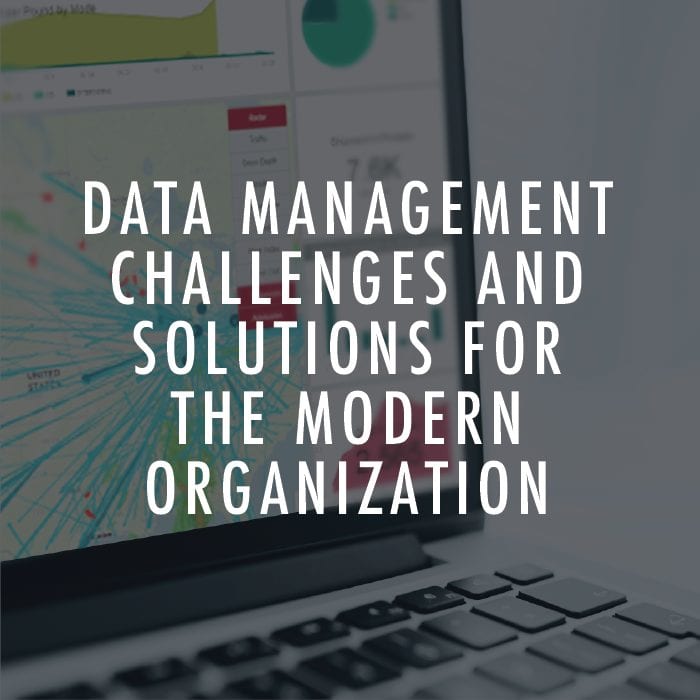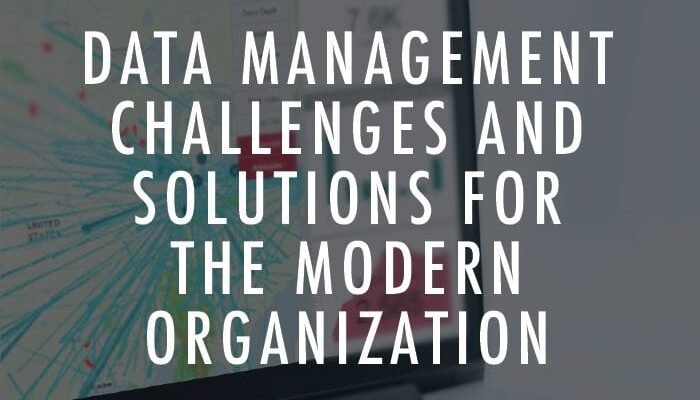Data Management Challenges and Solutions for the Modern Organization

When it comes to market competitiveness, strategic decision-making and maintaining standards of service, many organizations have realized the importance of proper data management. When properly maintained, data can provide businesses with visibility into the cost of their operations, the impact of their decisions, the status of their supply chain relationships and the ability to track compliance to agreements and forecasts.
However, data management does not come without challenges. In the realm of supply chain data management, there are a few common issues that seem to transcend industries, business models, or network scopes. These include:
- Lack of necessary resources allocated to technology and people
- Lack of appropriate and adequate systems
- Lack of coordination between varied network technology systems
Lack of Necessary Technology and People
Many organizations lack the technology and people that good data management requires. Organizations that internalize the technology they use tend to be environments that are restrictive on an organization’s ability to adapt to evolving data management capabilities, or to ensure the sustainability of their systems as their organization grows.
Organizations can often come to rely on a scenario in which a handful of people within the organization have the continued functionality of their organization’s systems resting on their shoulders. Their responsibilities could range from data input, coding, and problem-solving to an almost exclusive understanding of the legacy system and how it operates. This can become a real obstacle for any growth or optimization efforts, and it is also a huge risk for the organization.
Lack of Appropriate and Adequate Systems
Software and systems deficiencies that hinder an organization’s ability to correctly understand its supply chain activity usually fall into one of two categories.
- Legacy systems, usually on premises, that are designed around a specific network/operating model that has since changed
- Manual processes for functions that have yet to be automated (freight tendering, FA&P)
Lack of Coordination Between Network Technology Systems
Whether it is due to acquisition or the inconsistent deployment of technologies across an enterprise, it is not uncommon for an organization to have disparate systems managing similar functions in different parts of the organization. Unfortunately, this disparity is a significant obstacle to leveraging scale and planning supply chain activity, while considering the broader organization. Lack of resources and technology know-how exacerbate this problem.
As supply chains become more complex and the role of data becomes more important than ever, proper data management is no longer a “nice-to-have” — it’s a requirement. Building data management skills begins with an honest assessment of where your organization’s strengths and weaknesses lie, and where the gaps exist that prevent you from thinking about your supply chain strategically.
Where does your organization need to focus its attention to take your data management to the next level?

